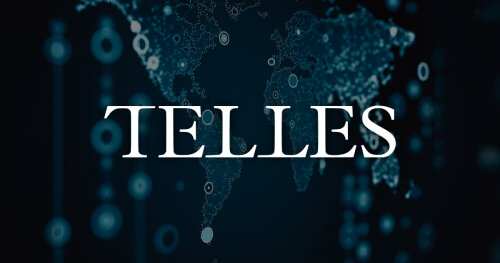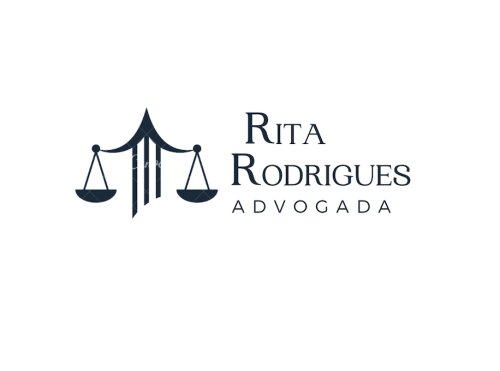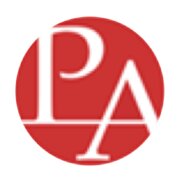Best Sanctions & Export Controls Lawyers in Porto
Share your needs with us, get contacted by law firms.
Free. Takes 2 min.
List of the best lawyers in Porto, Portugal
About Sanctions & Export Controls Law in Porto, Portugal
Sanctions and export controls are legal mechanisms designed to regulate and restrict the movement of goods, technology, and services across borders for reasons relating to national security, foreign policy, humanitarian concerns, and compliance with international obligations. In Porto, Portugal, businesses and individuals must adhere to a complex legal framework that includes both European Union regulations and Portuguese national laws. These controls help prevent the transfer of sensitive items to destinations or end-users with restricted access due to sanctions or embargoes. Violating these legal requirements can lead to severe economic and legal consequences.
Why You May Need a Lawyer
Seeking legal guidance in the realm of sanctions and export controls is critical for several reasons. Here are some common situations where you might require a lawyer:
- If you are involved in international trade or export activities and need to understand which products or technologies are subject to restrictions.
- If your business is facing investigations or enforcement actions related to alleged violations of sanctions or export controls.
- If you need advice about doing business with companies or individuals from sanctioned countries or regions.
- If you are implementing compliance programs and require assistance interpreting complex legislation.
- If you have received notification from customs or authorities concerning seizure or blocking of shipments.
- If you are unsure about licensing requirements for sensitive goods, such as dual-use items or military equipment.
A lawyer specializing in sanctions and export controls can help navigate the regulatory landscape, minimize risks, and represent your interests with the relevant authorities.
Local Laws Overview
Sanctions and export controls in Porto, Portugal are largely shaped by European Union regulations, but there are also Portuguese national laws and enforcement mechanisms in place. Key aspects of the legal framework include:
- The implementation of EU regulations on international sanctions, including embargoes, asset freezing, and restrictions on trade and investment with certain countries, entities, and individuals.
- Enforcement of export control rules covering dual-use goods (items with both civilian and military applications) and military products as specified by EU and national legislation.
- Licensing processes managed by Portuguese authorities, which are necessary for the export or transfer of restricted goods, technologies, or services.
- Strict penalties for non-compliance, including fines, confiscation of goods, and criminal charges.
- Collaboration between customs, police, and regulatory agencies to monitor, investigate, and enforce restrictions on exports and international transactions.
Keeping up with regular updates and amendments to these laws is crucial, as the list of sanctioned countries and regulated items can change quickly in response to international developments.
Frequently Asked Questions
What are sanctions and export controls?
Sanctions are official restrictions imposed on trade, financial transactions, or access to goods and services, typically targeting specific countries, individuals, or organizations. Export controls are laws that regulate or restrict the export of certain goods, technologies, and services for national security or policy reasons.
Who enforces sanctions and export controls in Porto, Portugal?
In Portugal, enforcement is coordinated between the Portuguese Ministry of Foreign Affairs, customs authorities, and relevant government agencies, in alignment with European Union regulations.
What is a dual-use good?
A dual-use good is an item, software, or technology that can be used for both civilian and military applications. Export of these goods is tightly regulated to prevent misuse.
Do I need a license to export to certain countries?
Yes, depending on the destination country and the nature of the goods or technology, you may need to apply for an export license from Portuguese authorities before proceeding.
How can I check if a person or company is subject to sanctions?
You should consult the official sanction lists published by the European Union and, where applicable, by Portuguese authorities. These lists are regularly updated and accessible online.
What are the consequences of violating sanctions or export control laws?
Violations can result in significant penalties, including heavy fines, confiscation of goods, loss of export privileges, and even criminal prosecution for severe infractions.
Are there exemptions to export controls?
Certain humanitarian goods or activities might be exempt under specific circumstances, but you should always consult with legal counsel or regulatory authorities before proceeding.
Can a lawyer help prevent compliance issues?
Yes, engaging a lawyer early can help your business implement effective compliance programs and avoid costly legal or regulatory problems by staying up-to-date with relevant laws.
What should I do if my goods are seized at customs?
Immediately seek legal advice to understand your rights and obligations. Your lawyer can help you communicate with authorities and, if possible, work towards the release of your goods.
How often do sanctions and export control regulations change?
These regulations can change frequently in response to global events or policy shifts, so it is crucial to monitor updates or consult legal professionals to remain compliant.
Additional Resources
If you require more information or direct support concerning sanctions and export controls in Porto, Portugal, consider the following resources:
- Portuguese Ministry of Foreign Affairs - International Trade and Sanctions Division
- Autoridade Tributária e Aduaneira (Tax and Customs Authority)
- European Commission Directorate-General for Trade
- Portuguese Chamber of Commerce and Industry
- International Chamber of Commerce Portugal
- Reputable local law firms or legal consultancies specializing in international trade and compliance
Next Steps
If you believe you need assistance navigating sanctions and export controls in Porto, Portugal:
- Document all relevant information about your products, transactions, and business partners.
- Identify any notifications, notices, or communications you have received from authorities.
- Contact a qualified lawyer in Porto who has experience in international trade law, sanctions, and export controls.
- Prepare specific questions or concerns to discuss with your lawyer, such as compliance obligations, licensing requirements, or risk assessments.
- Stay informed through official updates and legal resources to ensure ongoing compliance with all applicable laws and regulations.
Taking these steps will help you address potential issues proactively and protect your business interests in accordance with the latest legal requirements in Porto, Portugal.
Lawzana helps you find the best lawyers and law firms in Porto through a curated and pre-screened list of qualified legal professionals. Our platform offers rankings and detailed profiles of attorneys and law firms, allowing you to compare based on practice areas, including Sanctions & Export Controls, experience, and client feedback.
Each profile includes a description of the firm's areas of practice, client reviews, team members and partners, year of establishment, spoken languages, office locations, contact information, social media presence, and any published articles or resources. Most firms on our platform speak English and are experienced in both local and international legal matters.
Get a quote from top-rated law firms in Porto, Portugal — quickly, securely, and without unnecessary hassle.
Disclaimer:
The information provided on this page is for general informational purposes only and does not constitute legal advice. While we strive to ensure the accuracy and relevance of the content, legal information may change over time, and interpretations of the law can vary. You should always consult with a qualified legal professional for advice specific to your situation.
We disclaim all liability for actions taken or not taken based on the content of this page. If you believe any information is incorrect or outdated, please contact us, and we will review and update it where appropriate.
















